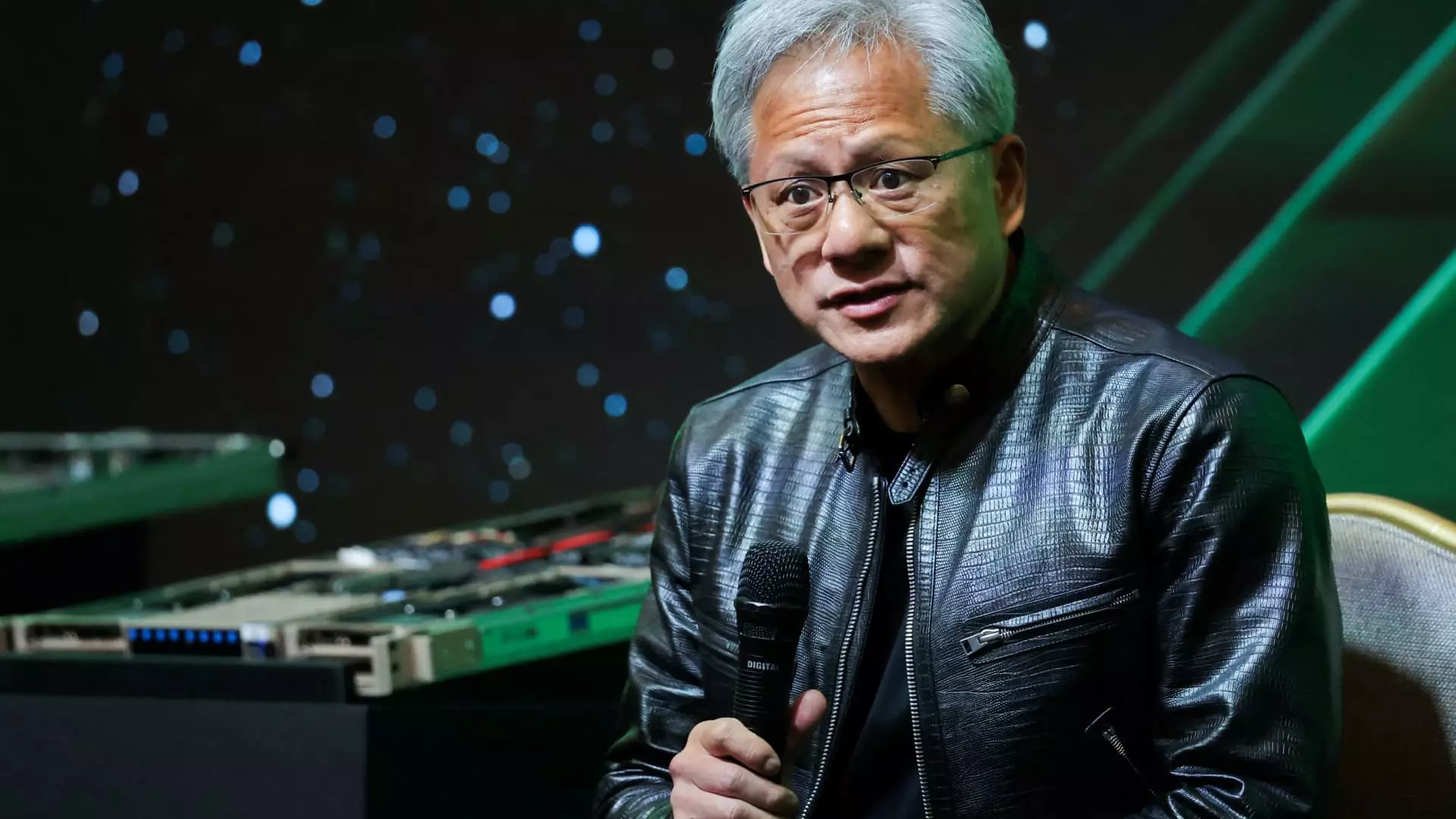The year 2023 marked a significant milestone for global brands, with Apple, Microsoft, Amazon, and Google leading the pack. These four iconic companies not only dominated the market but also boasted the highest valuations in the world. However, a surprising contender emerged in the form of Nvidia, a company that briefly surpassed Microsoft in market capitalization. Despite its impressive financial success, Nvidia failed to crack the top 100 most iconic brands according to Interbrand’s latest rankings.
Nvidia’s meteoric rise in valuation can be attributed to the soaring demand for its graphics processing units (GPUs) in the realm of artificial intelligence (AI). With over 80% market share in AI chip sales, Nvidia has become a crucial player in the tech industry. However, unlike its consumer-facing counterparts like Apple and Microsoft, Nvidia’s brand recognition remains limited outside of Wall Street. Greg Silverman of Interbrand highlighted Nvidia’s lack of focus on brand development as a potential risk that could hinder its long-term success.
Despite its branding challenges, Nvidia’s financial performance has been stellar, with a revenue growth rate exceeding 200% in recent quarters. The company’s data center GPUs, a key revenue driver, are a staple in large-scale AI projects that require specialized expertise for optimal performance. In contrast to consumer-centric brands like Apple and Microsoft, Nvidia’s success hinges on its ability to cater to enterprise clients and tech giants who rely on its cutting-edge technology.
While Nvidia may not enjoy the same level of consumer recognition as its peers, recent surveys suggest a shift in the perception of its brand value. In Kantar BrandZ’s ranking of the most valuable global brands, Nvidia climbed to the sixth position, reflecting a significant increase in overall brand worth. The company’s prominence in the B2B market was likened to Apple’s appeal in the consumer space, signifying a shift in Nvidia’s market positioning.
Founded in 1991, Nvidia initially focused on developing GPUs for graphics-intensive applications like gaming. Over the years, the company diversified its product portfolio to cater to emerging technologies such as AI. Despite its transformation into an AI powerhouse, Nvidia’s roots in gaming remain evident, with its chips powering popular consoles like the Nintendo Switch. While Intel focused on consumer branding through flashy campaigns, Nvidia forged partnerships with industry leaders to establish its presence in the enterprise segment.
As Nvidia continues to expand its reach in the AI market, the company faces the dual challenge of enhancing its brand recognition while maintaining its technological edge. The intricate sales process for Nvidia’s AI chips highlights the complexity of its business model, requiring collaboration with key partners to deliver comprehensive solutions to clients. With a growing base of retail investors and increased brand awareness, Nvidia is poised to overcome its branding hurdles and solidify its position as a key player in the tech industry.
Nvidia’s journey from a niche GPU manufacturer to a global AI powerhouse underscores the evolving landscape of the tech sector. While the company may not enjoy the same level of consumer visibility as its rivals, its impact on cutting-edge technologies like AI is undeniable. By leveraging its technological expertise and expanding its brand presence, Nvidia is poised to redefine its place in the tech ecosystem and continue its ascent to greater heights.


Leave a Reply
You must be logged in to post a comment.